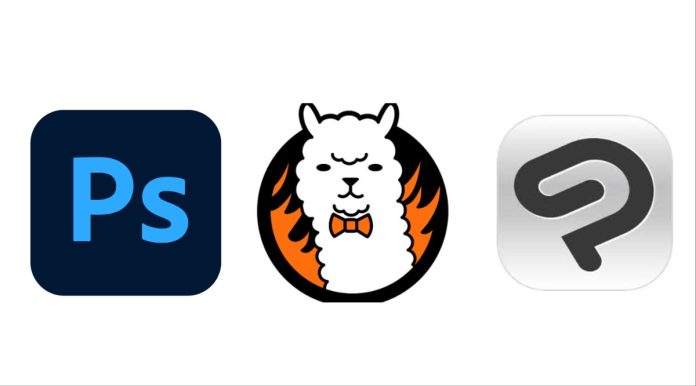Vertical comics and webtoons have been rising in popularity for the past few years. With many of the platforms that host these comics having a self-publishing scene of their own, it allows anyone to jump right in and get their story out there. But one question aspiring creators ask is: what programs are the best tools to get started?
This guide will list some of the software at your disposal along with the price, pros and cons, and list them based on which tools are used and recommended the most by artists across the vertical comic space. So whether you’re new to webcomic and webtoon creation or an experienced artist, at the end of the article you’ll have some ideas for your webtoon and webcomic journey.
Clip Studio Paint
Clip Studio Paint is a very versatile and powerful drawing software which has been in existence since the early 2000s. Back then it was known in the United States as Manga Studio. I personally have used the software since Manga Studio 4 around 2010.
The reason it is the go-to for many artists is the variety of tools and subtools that are available. There are premade comic templates for a variety of comics, including manga pages, western comic pages, webtoon presets and the option to create zines. The subtools range from prefab comic panels, fonts, sound effects, image materials, balloons, rulers and the option to use 3D dolls, models and basic shapes to speed up the process of creating your comic.
With recent updates Clip Studio Paint has allowed for the creation of animation too. You might be surprised to know that the animation side of the software has been used in some anime in recent years! The final main draw to Clip Studio Paint is the asset browser. Users can create, upload and download a variety of materials and assets for their art and comics. These range from user generated brushes to models, background assets, tools, effects, dolls and so much more.
Plus, Clip Studio Paint also has a native function now to export directly to WEBTOON and divide your vertical comic strips to upload to other platforms such as Tapas, NamiComi, GlobalComix, MangaPlus, Yurai and more.
Most of these features are available when you purchase the standard “pro” edition, for an affordable price. But if you want to do more, like manage multi-page projects and animate over 24fps, then you can upgrade to the EX version.
PRICING:
Clip Studio Paint Pro (perpetual license) – $54 USD
Clip Studio Paint EX (perpetual license) – $237 USD
PROS: Native WEBTOON prefabs, tools, export settings, export directly to WEBTOON, automatically divide long vertical comic strips for uploading to other platforms such as Tapas. Easily accessible asset store to download a wide range of assets to make it easier to create your comic.
CONS: Cannot import brushes from other software, no way to edit color channels of image layers or edit the alpha channel of transparent images.
Adobe Photoshop
Everyone has heard of Adobe Photoshop. It has been around since the 90s and has been the industry standard software for decades. Many illustrators have used it for the creation of their comics even if it doesn’t have all the prefabs and features that Clip Studio Paint has.
Photoshop is often used by comic artists who want to make use out of Photoshop’s advanced native layer editing features, filters, layer effects and one of the best liquefy and warp distortion tools to fine tune your art and achieve effects not normally possible in Clip Studio Paint. One example is using Photoshop’s liquefy and warp distortion tools to precisely wrap a tattoo design around a character’s arm while giving it depth. Another benefit is the ability to edit each layer’s color and alpha channels. This way you can fine tune transparency of layers or edit the red, green or blue color channels as you see fit.
The other major benefits are the collaboration features that come with the Adobe Creative Cloud and integration with other Adobe applications as needed. Since Adobe has been around for decades, the .psd format can easily be imported to a wide variety of other software outside of Adobe’s products, including Clip Studio Paint. The only major downside is the price and the current AI generative features, which could be a major deterrent to many artists. Personally, I would recommend finding an older version of Photoshop to use, like Adobe Photoshop CS6, which can be used instead of the CC versions if you’re on a budget.
PRICING: Adobe Photoshop – $22.99 USD/mo or $263.88 USD/yr subscription
PROS: Best layer editing tools on the market, access to a wide range of filters, effects, brushes and ability to edit and fine tune image color channels and alpha channels. Can also easily import the .psd file to a wide variety of software for further editing or use in other ways.
CONS: The price. No prefabs to set up and create a wide range of comics and art, no asset browser or native 3D tools to utilize. AI generative features. No native webtoon/vertical comic features.
FireAlpaca
A surprise contender which is being used by some creators in the Tapas and WEBTOON discord servers, FireAlpaca is a free-to-use drawing software that has been available since 2011. It comes bundled with certain types of Wacom Intuos tablets.
Compared to Photoshop and Clip Studio Paint, FireAlpaca is more user friendly and closer to Clip Studio Paint in terms of the UI and features available. It even comes with its own brush store where users can download free brushes to use in their work.
FireAplaca also offers templates and comic tools for users to get into creating their own comics. While not as in-depth as Clip Studio Paint, the fact it is free and offers such versatility is worth commending. It’s a great starting point for artists to get familiar with digital illustration and comic creation before moving on to other paid software tools.
There is a paid version of FireAlpaca which removes ads and allows the use of a liquefy tool and layer masking. It can also be downloaded through Steam.
PRICING: FireAlpaca – Free to download | FireAlpaca SE/Go (perpetual license) – $39.99 USD
PROS: Easy to use illustration software for beginners, comes with comic-creation tools, asset store, templates to import.
CONS: Very basic, free version doesn’t allow for layer masking or the liquefy tool.
Honorable mentions
Here are some honorable mentions to other software that are also available:
- Paint Tool Sai
- Procreate
- Krita
Hopefully you found this article useful to get an idea of which software to use to begin your webcomic journey or to try out if you’re already working on your projects. Any software that isn’t on the list that you recommend using for webcomic creation? Let us know in the comments.


[…] Guererro has put together Tools To Get You Started In Webcomics over at KComics […]